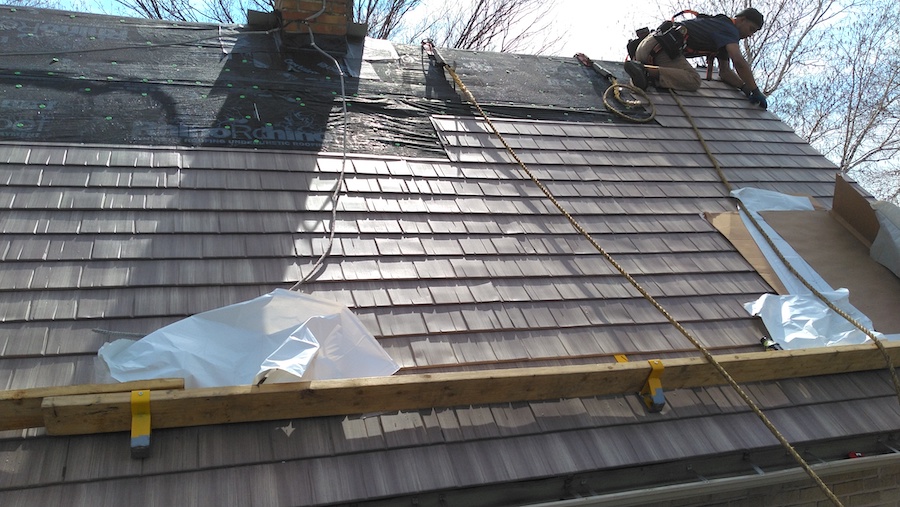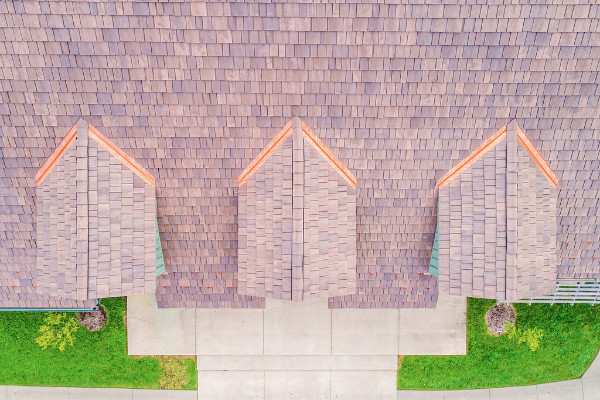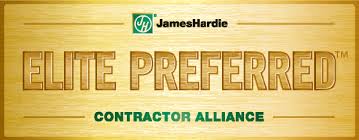At Semper Fi Roofing & Exteriors, we understand that selecting the right roofing material is crucial for the longevity and aesthetic of your home. When comparing composite roofing to cedar shake shingle roofing, it’s essential to consider their fundamental differences, starting with the materials they are made from.
To get started on your roofing project, call us now at 262-500-4612 or contact us online.
What is the Difference Between Cedar Shake and Composite Roofing?
Cedar shake roofing and composite roofing present homeowners with distinct choices, each with its own set of advantages. Cedar shake, made from natural wood, offers a classic, rustic appearance and natural insulation properties but requires regular maintenance to prevent deterioration and is more susceptible to fire and insect damage.
Composite roofing, on the other hand, is crafted from a blend of synthetic materials, providing durability, a wide range of styles, and less maintenance. It mimics the look of natural materials, including cedar, without the associated upkeep and vulnerability. Thus, the choice between cedar shake and composite roofing boils down to prioritizing aesthetic and natural qualities versus seeking longevity and ease of maintenance.
For a more detailed description, check out the pros and cons of each roofing material below!
Pros of Cedar Shake Roofs:
- Durability: Cedar shake roofs are celebrated for their robustness. Crafted from real cedar, these shakes boast a high density and thickness, rendering them exceptionally resistant to harsh weather conditions. Compared to standard asphalt shingles, cedar shakes generally offer a longer lifespan, ensuring that your investment stands the test of time.
- Appearance: Opting for a cedar shake roof means choosing timeless beauty for your home. The natural, rustic appearance of cedar shakes not only enhances the curb appeal of your property, but also matures gracefully over time, transitioning into varying tones that reflect the original color of the wood.
Cons of Cedar Shake Roofs:
- High Maintenance: While cedar shakes offer numerous benefits, it’s important to note that wood, as an organic material, is susceptible to decay and rot, particularly in colder climates. This necessitates regular inspections and maintenance to preserve the integrity of your roof.
- Difficult Installation Process: The installation of a cedar shake roof demands a level of expertise beyond that required for more common roofing materials like asphalt shingles or metal. Due to the heavier nature of real wood and the intricacies involved in ensuring optimal water runoff and leak prevention, it’s crucial to engage a contractor with specific experience in cedar roofing.
- Fire Risk and Insurance Considerations: Wood’s flammability poses an increased fire risk, a significant concern in areas prone to wildfires. This risk can affect homeowners both directly and indirectly, as many insurance companies may increase premiums or hesitate to offer coverage for natural cedar roofs. We advise consulting with your insurance provider and adhering to local building regulations to understand the implications fully.
Pros of Composite Roofing:
- Durability: Composite shake shingles are known for their high durability and resistance to impact, making them less likely to crack or break compared to natural materials.
- Longevity: These synthetic shingles have a long lifespan, often outlasting traditional roofing materials, which can make them a cost-effective choice over time.
- Maintenance: Composite shingles require minimal maintenance compared to natural materials. They resist algae and mold growth, and their color doesn’t fade as quickly.
- Eco-Friendly: Made from recycled materials, composite shake shingles are an environmentally friendly roofing option. They are also fully recyclable at the end of their life.
- Aesthetics: At Semper Fi Roofing & Exteriors, we off Brava shingles that closely mimic the look of natural materials, providing aesthetic appeal without the drawbacks of natural shingles.
- Weather Resistance: These shingles are designed to withstand severe weather conditions, including high winds, heavy rain, and hail.
- Fire Resistance: Composite shingles have excellent fire resistance ratings, contributing to the overall safety of the home.
- Lightweight: Compared to their natural counterparts, composite shingles are lightweight, reducing the stress on a building’s structure.
Cons of Composite Roofing:
- Cost: The initial cost of composite shingles can be higher than traditional roofing materials, making them a significant upfront investment.
- Installation: Proper composite roof installation is crucial for maximizing the benefits of composite shingles. Finding experienced installers who are familiar with synthetic shingles may be challenging.
- Perception: Some homeowners may prefer the authenticity of natural materials and perceive synthetic options as less desirable, potentially affecting resale value.
- Limited Awareness: As a relatively newer option in the roofing market, synthetic shingles like Brava’s may be less well-known to some contractors and homeowners, possibly leading to hesitancy in adoption.

The Timeless Charm of Cedar Roofs
The timeless charm of cedar shake shingles lies in their natural beauty and the rustic elegance they lend to any home. Crafted from real cedar wood, these shingles are celebrated for their unique textures, warm tones, and the distinctive character they bring to a roof. Unlike other roofing materials, cedar shakes offer a depth and dimensionality that can transform the overall appearance of a house, enhancing its curb appeal and potentially increasing its value.
Cedar shake shingles are cut from the heartwood of cedar trees, a resource known for its durability and resistance to the elements. The natural oils present in cedar wood make these shingles inherently resistant to rot, decay, and insect damage, contributing to their longevity and making them a sustainable choice for those looking to incorporate natural materials into their home’s design.
Despite the undeniable appeal of real cedar shake shingles, it’s important for homeowners to consider their maintenance and installation requirements to preserve their beauty and longevity. Regular inspections and treatments can protect the wood from moisture and UV rays, ensuring that the roof remains a durable and attractive feature of the home for many years.
There are many types of roofing materials that protect your home and make it beautiful to look at. For those drawn to the natural aesthetics provided with a cedar shake roof, we proudly offer Brava Cedar Shake, a composite roofing material that gives the aesthetic appearance of real cedar while boasting a Class 4 impact rating and a Class A fire rating. This material is an incredible option for homeowners looking for a cedar aesthetic without the hassle of installation and maintenance required for a real cedar roof.
Cedar Shake Shingle Roofing Installation
The installation of a cedar shake shingle roof in Wisconsin is not just about laying roofing materials; it’s about crafting a masterpiece that stands against the backdrop of the state’s diverse and often challenging weather patterns. Each shingle, with its unique texture, color, and grain, is carefully selected and sized. This approach to roofing comes with higher installation costs, attributed to the labor-intensive nature of the work and the expertise required to execute it flawlessly.
Composite Roofing Shingles Installation
The composite roof installation process of Brava composite roofing shingles in Wisconsin is a testament to modern roofing technology’s ability to meet the demands of a challenging climate while providing homeowners with a blend of aesthetic appeal, durability, and cost-effectiveness.
These shingles are meticulously engineered for quick and secure attachment to the roof’s sheathing and rafters, embodying a process that is both streamlined and efficient. This approach significantly reduces composite roof replacement times and, by extension, labor costs, making it an attractive option for Wisconsin homeowners facing the state’s unpredictable weather patterns.

Advantages of Composite Roofing in Wisconsin
The lightweight nature of Brava composite shingles is a notable advantage, especially in Wisconsin, where roofing materials must withstand heavy snowfalls without imposing excessive stress on the building’s structure. This ease of handling and positioning not only simplifies the installation process but also ensures a rapid response to roofing needs, an essential factor during the short construction seasons dictated by Wisconsin’s cold winters and warm summers.
Furthermore, Brava’s commitment to manufacturing shingles with uniform quality speaks directly to the needs of Wisconsin’s homeowners. These composite shingles eliminate the need for extensive sorting or matching on-site, facilitating a smoother and faster installation process. This uniformity is critical in a state where weather windows for roofing projects can be narrow, requiring materials that allow for efficient use of available installation periods.
Making Your Roofing Decision
Making the right roofing decision for your home involves weighing various factors, including material durability, aesthetic preferences, energy efficiency, and budget considerations. With the diverse climate in Wisconsin, it’s crucial to choose a roofing solution that not only complements the architectural style of your home but also stands up to the rigors of local weather conditions.
Whether you’re leaning towards the natural beauty of cedar shake or the cost-effectiveness of asphalt shingles, or the innovative features of Brava, understanding your options is key to making an informed decision. Luckily, we’re here to help you navigate these options to find the best solution for your home!

